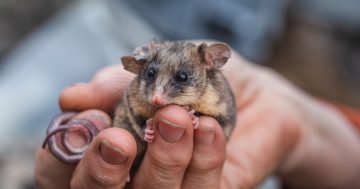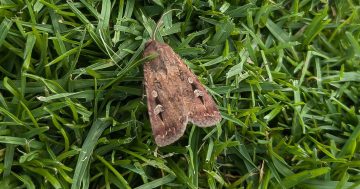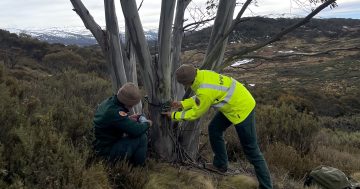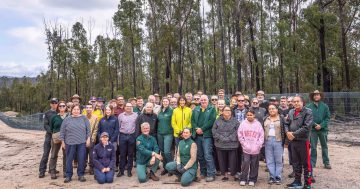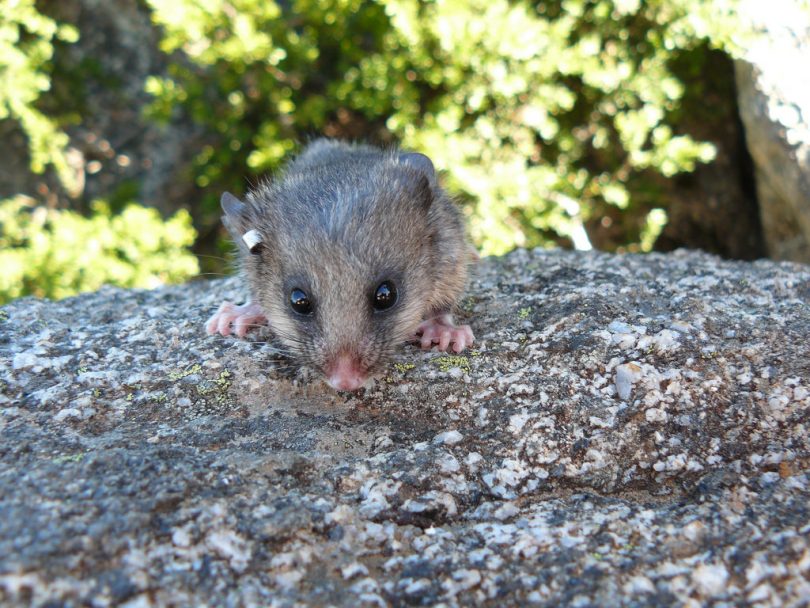
Mountain Pygmy Possum. Photo: NSW Environment and Heritage.
They’ll probably never beat the chocolate chip as favourite biscuit ingredient, but bogong moth biscuits are a life-saving treat for the high country’s endangered mountain pygmy possums.
The biscuits have been produced with the help of school students from across the Snowy Mountains region, in partnership with the NSW Government’s Saving our Species (SoS) program and NSW National Parks and Wildlife Service (NPWS).
Researchers say the biscuits “have the consistency of an ANZAC biscuit, taste a bit like a nutty gym protein bar and smell a little like Cheds crackers”. The recipe was developed in Victoria in a collaboration between Zoos Victoria and the University of Melbourne.
The treats are a life-saving, emergency food source for the endangered Mountain Pygmy-Possums of Kosciuszko National Park, following the devastation of the Dunns Road fire during the 2019-20 summer.
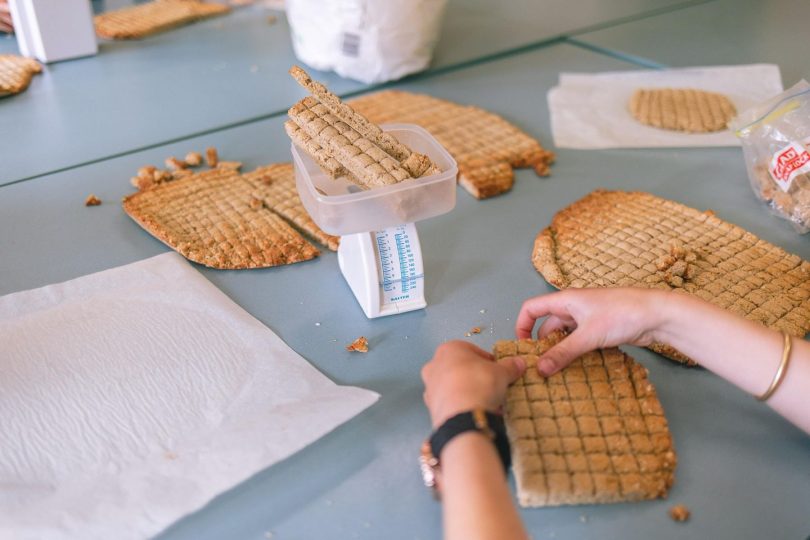
“Bogong bickies” being prepared by students at high country schools. Photo: Supplied.
NPWS Discovery Coordinator Dan Nicholls said that the possums would be in urgent need of the ‘bogong bickies’ after waking from their winter hibernation to find that their alpine boulder field habitat was still severely impacted by the fires, leaving them with no natural food sources.
“Although many Australian native species have evolved with fire, our SoS conservation scientists have worked hard to protect this species, and we want to see them continue to flourish. NPWS and SoS officers were quick to respond in January 2020 by delivering supplementary food and water to the small marsupials until they entered hibernation at the end of autumn,” Mr Nicholls said.
This effort meant that the possums were able to fatten for their winter hibernation. However, they’ve now woken for the breeding season to find that there’s still not enough natural food to support the highly vulnerable population.
Students from Berridale Public School contacted NPWS to ask what they could do to help Kosciuszko National Park recover from the bush fires and were tasked with the bogong bickie baking by the team at the Kosciuszko Education Centre. Since then, other schools in the region have also been recruited. The NPWS says the response from students has been “overwhelming”.
Cooma Public School, Adaminaby Public School and Jindabyne Central School all joined the baking effort. The results are now being distributed by SoS and NPWS team members throughout the Mountain Pygmy-Possum’s alpine habitat.
The biscuit recipe is designed to replicate the nutritional value of Bogong moths, one of the possum’s main food sources. Baking the moths into biscuit form makes them easily transportable and accessible for the small possums and other wildlife which rely on the annual moth migration.
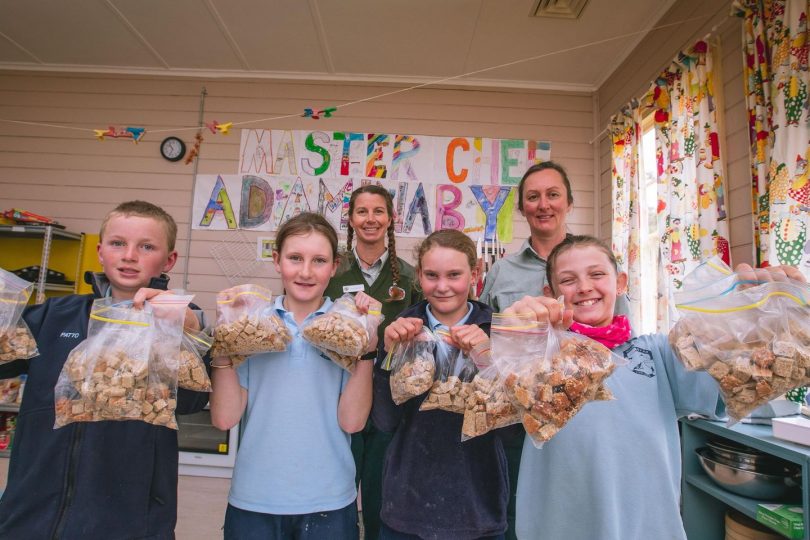
Adaminaby Public School students with their bags of bogong bickies. Photo: Supplied.
Researchers say that trials at the Healesville Sanctuary showed that the possums liked the food, but happily ate other food too, indicating that the biscuits would be readily accepted but not chosen over natural food sources.
Within days of the fires, Victorian researchers had deployed emergency supplies to their NSW counterparts. Teams from Saving Our Species and NSW National Parks and Wildlife Service built 62 feeders and water stations in six boulder fields, baked batches of bickies and started emergency feeding.
The biscuits have also provided vital supplementary food to other species including native bush rats and dusky antechinus.
Mountain pygmy-possums are the only Australian marsupial that hibernates every winter under snow, making it essential they build fat reserves before their long winter sleep. The main food source during their spring/summer breeding season is the migratory bogong moth.
However, the Black Summer of fires also came after a devastating drought in 2017 and 2018, meaning that the billions of expected bogong moths largely failed to arrive. This left many females underweight and unable to produce enough milk for their young. The majority of females being monitored in the Victorian high country lost their entire litters during this period.
While the possums’ Victorian habitat was largely unaffected by last summer’s NSW fires, the already-vulnerable species has been left in a precarious state across the entirety of the high country by several disastrous seasons, so feeding efforts are critically important on both sides of the border.
“While the fires seem like a long time ago now, their impacts continue to be felt across the state. While many areas are recovering well, some still require a helping hand, so it’s great to see what can be achieved with the support of local communities,” Mr Nicholls said.
Original Article published by Genevieve Jacobs on The RiotACT.







